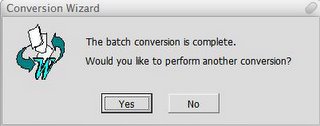I was excited to read Shari Wilson's essay "The Surprising Process of Writing" in Inside Higher Ed. Wilson (a pseudonym) finds that for many of her students, in-class writing is much stronger than essays written outside of class:
[T]his semester, 8 of my 20 sophomore English composition students scored significantly better on in-class essays written by hand in a timed situation. Some jumped more than a full grade level. In my three freshman composition classes, almost 20 of 60 students excelled when allowed to write in class rather than compose typed papers on their own time. In fact, at a large community college in California where I taught for six years, I frequently saw 10 to 25 percent of my developmental- and freshman-level writers do significantly better when asked to compose in-class with a topic given just before a two-hour writing period.
Over many semesters, I've seen the same sorts of results. Wilson and I would differ on the explanation: she thinks that students are revising their outside writing until it becomes "stiff and mechanical." I don't suspect excessive revision: my hunch is that when students are writing in class, they're writing without distractions, without
continuous partial attention, and are thus able to make more coherent essays. Writing in class, they're doing something quite different from "playing the keyboard" to get to Control-P.
Wilson has some interesting things to say about differences between writing by hand and writing with a keyboard:
[H]andwriting encourages students to focus on the writing process; for those less experienced with computers, keyboarding encourages students to focus on the end product. When asked to type up a sample paragraph in a classroom computer lab, all 20 of my English composition students spent more than 15-minutes setting up a document in MS Word, setting margins, choosing a font, centering a title, and typing up their names, instructor's name and class name at the top so that it sat flush-right. This left a disappointing 30-minutes of actual composing of text -- and of that, approximately five to nine more minutes were wasted when students insisted on particular line breaks with text, tried to change the amount of space between lines, and attempted to remove forced underlining of URLs.
Each of these issues becomes a non-issue with handwritten work.
My own preference, in any context, is to keep the focus on the work of writing, and to make the means of production as simple as possible. Writing is not word-processing. But if a computer makes its easier, not more difficult, to focus on the work of writing, that's good too.
Link:
"The Surprising Process of Writing", from
Inside Higher EdRelated posts:
"Amish computing",
"My version of 'Amish computing'"





